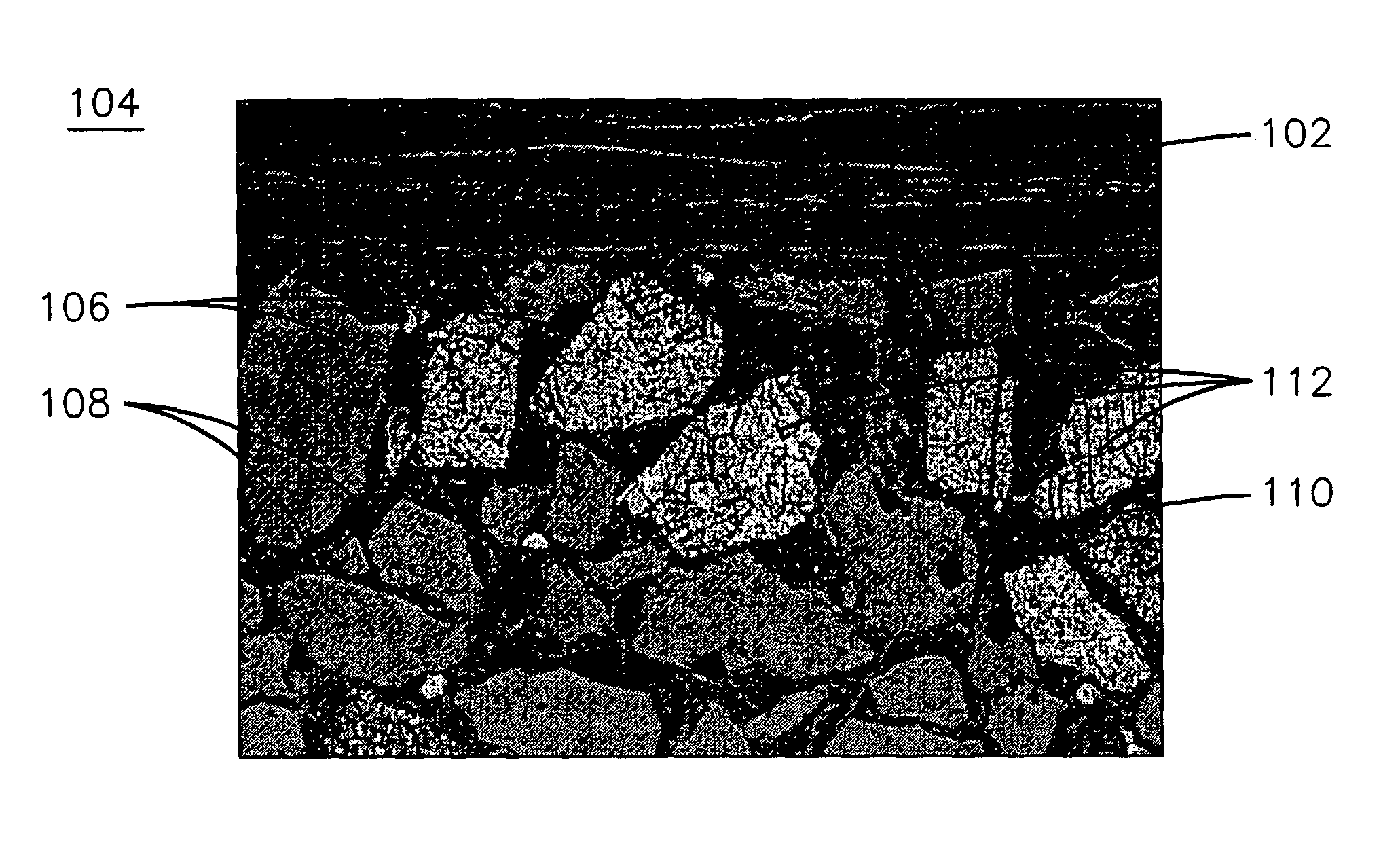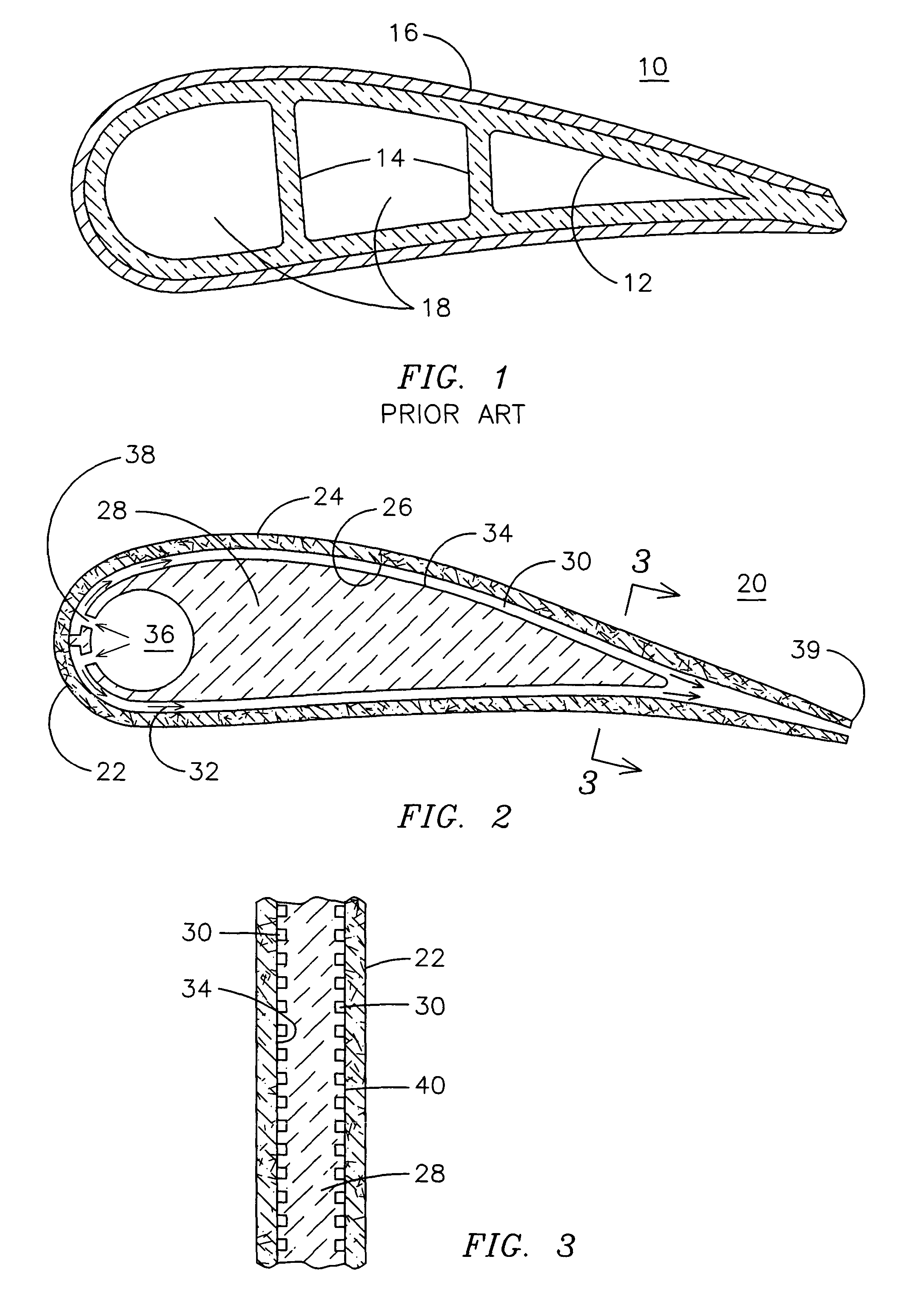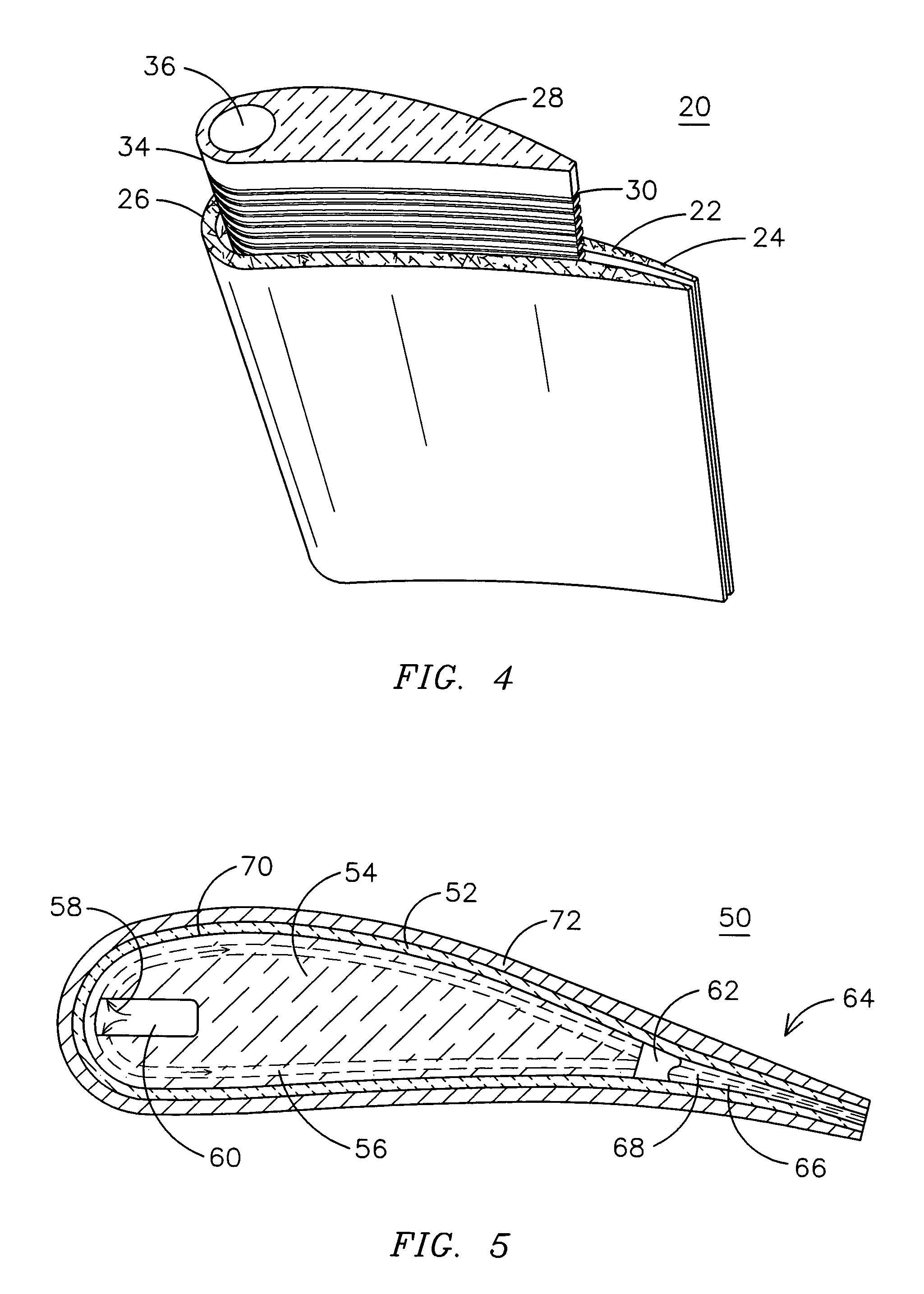Strain tolerant aggregate material
a technology of aggregate materials and aggregates, applied in the direction of wind motors with parallel air flow, wind motors with perpendicular air flow, liquid fuel engine components, etc., can solve the problems of ineffective backside closed-loop cooling as a protection technique for materials, generally not as strong as metals, and large cross-sectional area of specific applications
- Summary
- Abstract
- Description
- Claims
- Application Information
AI Technical Summary
Problems solved by technology
Method used
Image
Examples
Embodiment Construction
[0012]FIGS. 2–4 illustrate an improved stationary vane 20 for a gas turbine engine. The vane 20 includes an airfoil member 22 formed from a ceramic matrix composite material having an outer surface 24 defining an airfoil and an inner surface 26 defining a core region. The term ceramic matrix composite is used herein to include any fiber-reinforced ceramic matrix material as may be known or may be developed in the art of structural ceramic materials. The fibers and the matrix material surrounding the fibers may be oxide ceramics or non-oxide ceramics or any combination thereof. A wide range of ceramic matrix composites (CMCs) have been developed that combine a matrix material with a reinforcing phase of a different composition (such as mulite / silica) or of the same composition (alumina / alumina or silicon carbide / silicon carbide). The fibers may be continuous or discontinuous fibers and may take the form of whiskers, platelets or particulates. Reinforcing fibers may be disposed in the...
PUM
| Property | Measurement | Unit |
|---|---|---|
| Temperature | aaaaa | aaaaa |
| Fraction | aaaaa | aaaaa |
| Fraction | aaaaa | aaaaa |
Abstract
Description
Claims
Application Information
 Login to View More
Login to View More - R&D
- Intellectual Property
- Life Sciences
- Materials
- Tech Scout
- Unparalleled Data Quality
- Higher Quality Content
- 60% Fewer Hallucinations
Browse by: Latest US Patents, China's latest patents, Technical Efficacy Thesaurus, Application Domain, Technology Topic, Popular Technical Reports.
© 2025 PatSnap. All rights reserved.Legal|Privacy policy|Modern Slavery Act Transparency Statement|Sitemap|About US| Contact US: help@patsnap.com



